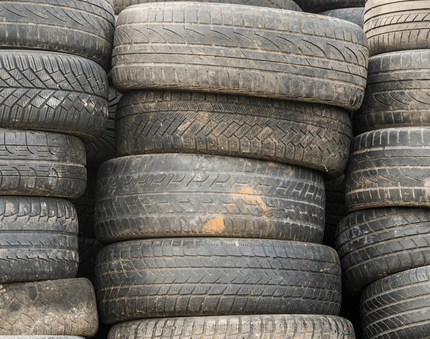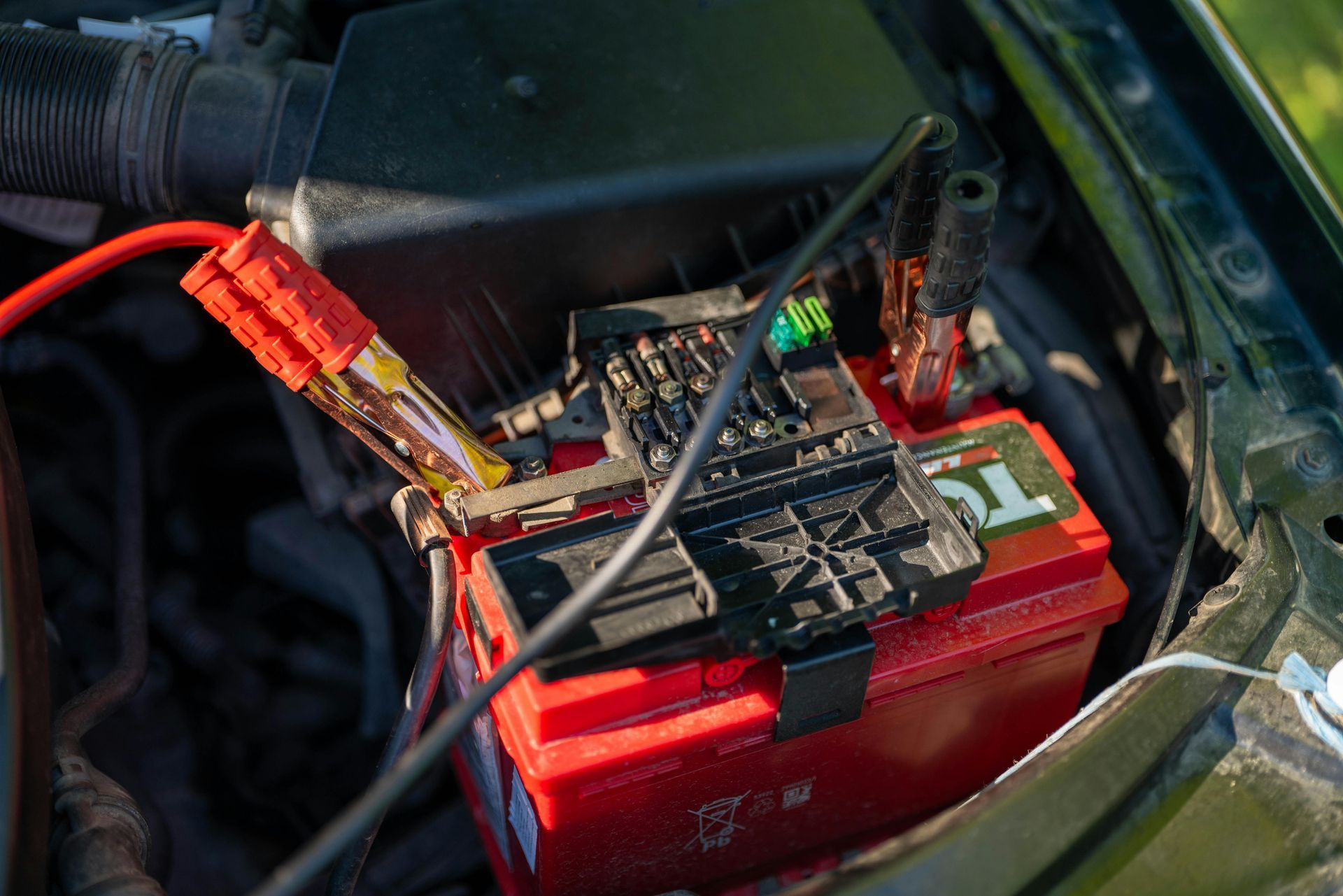The Truth About Used Tires: Are They Worth It?
Auto Shops Located in: Chapel Hill, Durham, Taleigh, Apex, and Cary North Carolina

Replacing your tires can be confusing. If you’re researching tire replacement, you may be asking yourself questions like: How often should I replace my tires? Should I replace all my tires at once? What type of tires should I get?
Unfortunately, you can find a lot of false information on tires, but you don’t have to go into the process uninformed.
As you consider buying new tires vs. used tires, learn more about the risks associated with used tires and how buying new ones can actually save you money in the long run.
New Tires Vs. Used Tires: The Risks of Discount Used Tires
While it may be tempting to save some money by buying used tires, skipping out on a new set also carries some unwanted risks. The primary risks of buying used tires include the following:
- Lower tread depth and reduced performance: Regular wear and tear will lower a tire’s tread depth, which can impact a vehicle’s traction and raise the risk of hydroplaning. If your used tires have worn down tread depth, you may not get the traction you need to brake in time. Even if the tread depth on the used tires you’re considering seems okay, it will be lower than the tread depth of a new tire.
- Higher risk of pre-existing damage: Issues like punctures, deterioration due to weather or improper storage, and damage to the sidewall aren’t always easy to spot. A set of used tires you’re thinking about purchasing could have gone through multiple repairs without you being able to tell! If you buy a set that’s been damaged a few times, there’s a chance that the repairs could fail at an inconvenient moment.
- Larger chance of the tire failing quickly: When tires age, the rubber hardens, and they lose elasticity. If you’re driving on used tires, it’s like driving on borrowed time for the most part. They may seem great at first, but if they’ve had a lot of miles put on them, they can go bad quickly.
- Lack of reliability: It’s hard to gauge how reliable a set of used tires will be. With a new set, you can read reviews and get a sense of what to expect, but with used ones, it can be a coin toss. From reduced tread depth and ineffective repairs to hidden punctures and general wear, several factors can harm the reliability of used tires.
- Greater chance of needing frequent replacements: Buying used tires means you’ll have to replace them quicker than you would a new set. While you’ll save money in the short term by purchasing used tires, you’ll likely spend more in the long run, as you’ll have to replace your tires in a shorter time span.
- Lower fuel efficiency: Poor tire traction increases resistance, which will make your car’s fuel economy worse. Lower fuel economy means more money on gas and less in your wallet! Since used tires will have less tire traction, you’ll likely pay more in gas when you go with a used set instead of new ones.
Used Tires Vs. New Tires: The Advantages of New Tires
There are many benefits to buying new tires instead of used ones. While you shop around for tires, review the benefits of purchasing new tires below:
- Improved performance: With new tires, you won’t have to worry about degraded tire tread or damage to other parts of the tire. Due to the lack of wear on the tread depth, you can be confident your braking action and traction won’t be negatively impacted when you purchase a set of new tires.
- Better reliability: If your tires are new, they’ve never been repaired. Knowing that you’re driving on used tires can stress some folks out, so getting new tires can also be a way to ease your mind, knowing you can rely on your tires to hold up on the road for many years.
- Greater Durability: New tires often come with warranties for defects or damage within the first year. They also haven’t had hundreds or thousands of miles driven on them already, so there won’t be any previous wear and tear. A lack of wear and tear makes new tires more durable, and it’s far more likely you’ll get the full lifespan out of them.
- Higher Fuel efficiency: Newer tires won’t have the traction issues that used ones have. As a result, new tires should help you save money on gas over time, especially if they are fuel-efficient tires.
- Smoother ride and improved handling: New tires will be balanced and aligned when installed, leading to a more comfortable driving experience. With newer tires, your vehicle will be more responsive when you need to brake or turn your vehicle quickly. This improved handling can be crucial for your safety during potentially dangerous situations on the road.
Choose Chapel Hill Tire for the Best Car Tires in the Triangle
If you need tire replacement services in Durham, Raleigh, Chapel Hill, or the surrounding areas, Chapel Hill Tire can help. When you bring your vehicle into the shop, our certified mechanics can help you select the perfect set of new tires from a trusted brand. Our team can also perform regular tire inspection, rotation, and alignment services to lengthen your tires’ lifespans. Before you schedule an appointment, check out our promotions to find a great deal on our many services!
Learn more about our tire replacement services and review our available tires today. When you’re ready to bring your car in, please make an appointment at one of our convenient locations in the Triangle Area.















